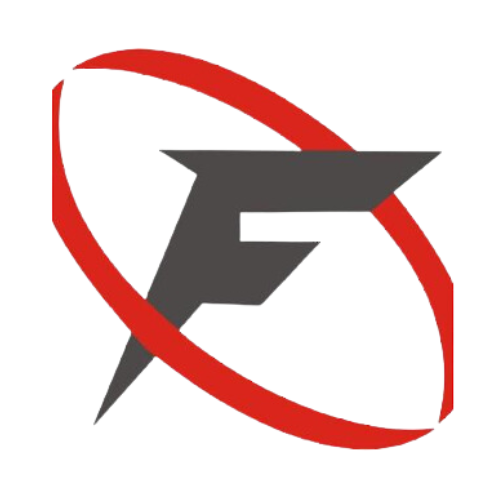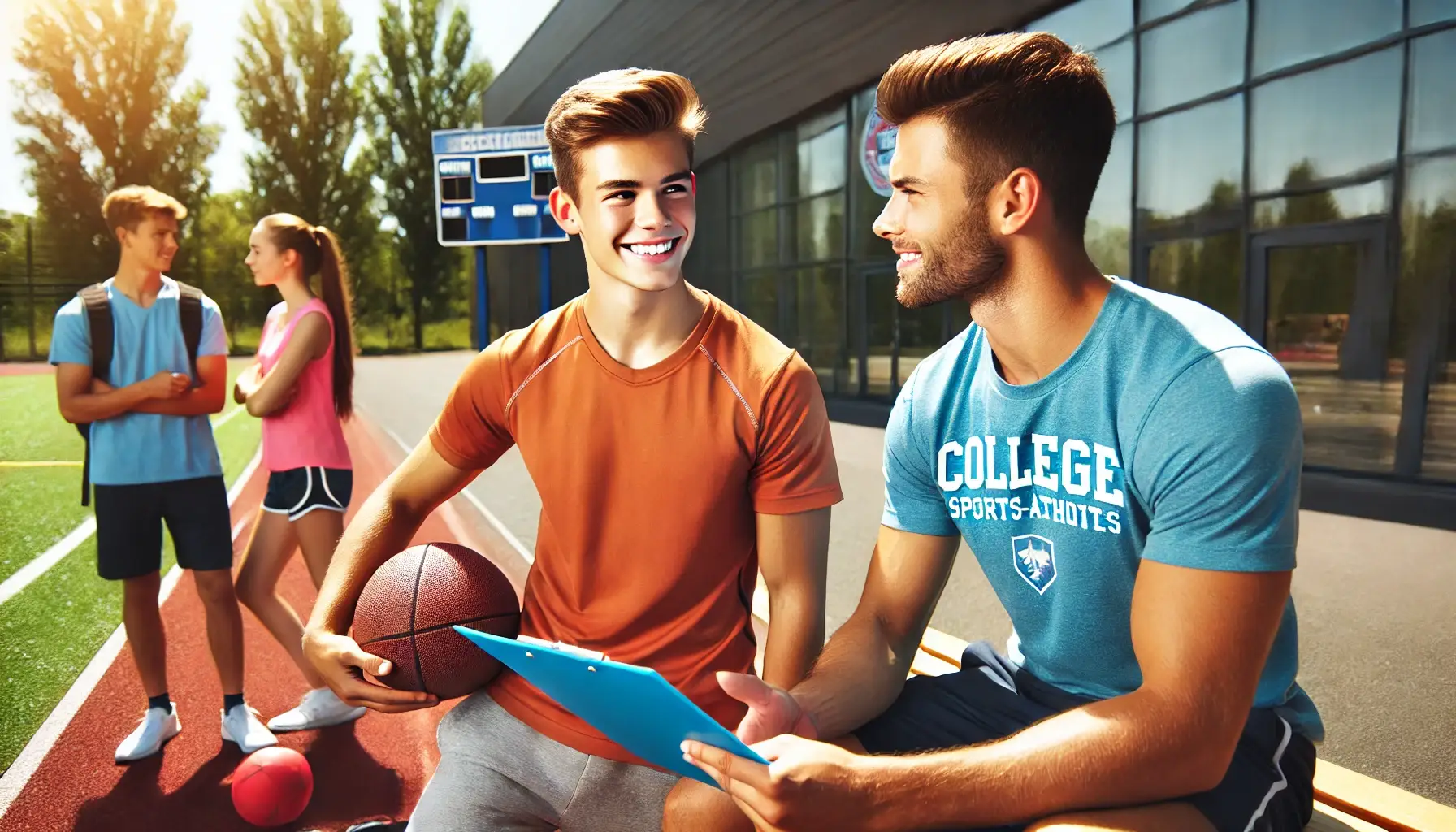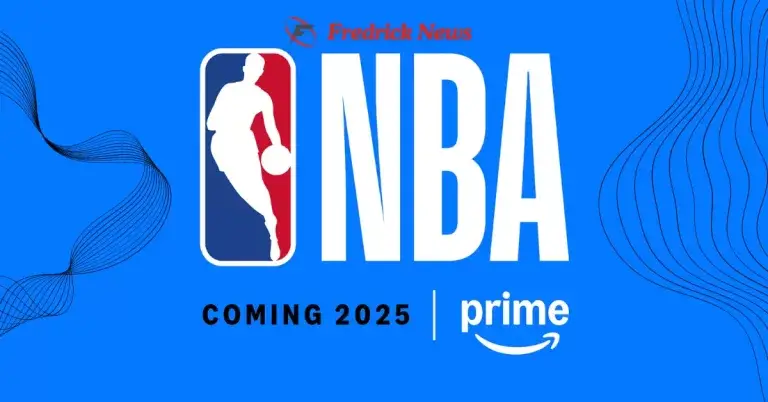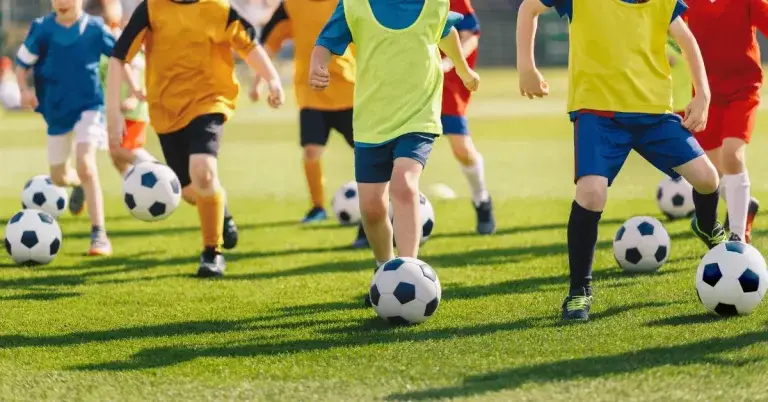When Can College Coaches Contact You?
Find out when college coaches can contact you according to NCAA rules. This guide explains contact periods, communication methods, and what to expect during recruitment. It is perfect for high school athletes and parents.
Navigating the college recruitment process can be confusing for high school athletes and their families. Knowing when college coaches are allowed to contact you is a crucial part of this journey. Understanding the NCAA recruiting rules helps ensure you’re prepared for each step, making the process smoother and less stressful.
In this guide, we’ll break down the key dates and contact periods, so you’ll know exactly when and how coaches can reach out to you. Whether you’re a freshman just starting to think about college or a senior finalizing your options, this information is essential to your recruitment success.
Understanding NCAA Recruiting Rules
The NCAA recruiting rules are designed to create a fair and regulated process for both athletes and college programs. These rules dictate when and how college coaches can communicate with high school athletes. They help ensure that all students have equal opportunities and prevent any undue pressure from being placed on young athletes.
The NCAA, or National Collegiate Athletic Association, oversees college athletics and sets recruitment guidelines. These rules are divided into different periods throughout the year, each with its own set of regulations. Understanding these periods and what they mean for your recruitment process is essential.
Key Terms
Before diving into the specific periods, it’s important to understand some key terms:
- Contact Period: During this time, college coaches can communicate freely with athletes, including in-person visits, phone calls, and emails.
- Evaluation Period: Coaches can watch athletes compete and visit their high schools, but direct contact is limited.
- Quiet Period: Coaches may not visit athletes in person but can still communicate via phone or email.
- Dead Period: No in-person contact is allowed. Coaches can still write or call, but visits are off-limits.
NCAA Recruiting Calendar
The NCAA recruiting calendar is critical for high school athletes and their families. It outlines specific periods when college coaches can and cannot contact prospective student-athletes. This calendar helps manage the recruitment process, ensuring that it is fair and consistent for all athletes. Here’s a breakdown of the different periods in the NCAA recruiting calendar:
Contact Period
During the Contact Period, college coaches are allowed to meet with high school athletes and their parents face-to-face and visit them at their high schools or homes. This period is vital for building relationships and better understanding the athletes’ abilities and personalities.
What’s Allowed:
- In-person visits
- Phone calls
- Emails
- Text messages
Evaluation Period
In the Evaluation Period, coaches are permitted to watch athletes compete and visit their high schools. However, direct contact is limited. This period focuses on assessing the athlete’s performance and potential in their sport.
What’s Allowed:
- Watching competitions
- Visiting high schools
- No in-person meetings with athletes
Quiet Period
The Quiet Period restricts coaches from visiting athletes in person, either at home or at their high schools. They can still communicate via phone calls, emails, and texts. This period often occurs during off-seasons or around major holidays.
What’s Allowed:
- Phone calls
- Emails
- Text messages
- No in-person visits
Dead Period
The Dead Period is the most restrictive. During this time, coaches and athletes are not allowed to contact each other in person. Coaches can still write or call, but all visits, including unofficial and official campus visits, are prohibited.
What’s Allowed:
- Phone calls
- Emails
- Text messages
- No in-person visits
Sport-Specific Variations
While many of the rules are standard across all sports, some sports have specific guidelines and different periods. For example, football and basketball have unique recruiting calendars that reflect the intensity and popularity of these sports.
Importance of Knowing the Calendar
Understanding the NCAA recruiting calendar is crucial for planning your recruitment strategy. Knowing when you can expect contact from coaches and when you can showcase your skills will help you make informed decisions and stay ahead in the recruiting process.
Check out Understanding D1, D2, and D3 in College Sports.
Specific Contact Periods
Navigating the NCAA recruiting process requires a clear understanding of the different contact periods. Each period has distinct rules about how and when college coaches can communicate with high school athletes. Here’s a closer look at each of these periods and what they mean for you:
Contact Period
The Contact Period is when college coaches have the most freedom to communicate with athletes. This is the time for building relationships and getting to know each other better.
When it Occurs:
- It varies by sport but generally includes parts of the academic year and summer.
What’s Allowed:
- In-Person Visits: Coaches can meet with you at your home, school, or other locations.
- Phone Calls and Texts: There are no limits on the number of phone calls or texts.
- Emails: Regular email communication is allowed.
- Official Visits: Athletes can make official visits to college campuses.
Tips:
- Be prepared to discuss your athletic and academic achievements.
- Have questions ready to ask coaches about their programs.
- Make sure to follow up after meetings or phone calls to express continued interest.
Evaluation Period
During the Evaluation Period, coaches focus on assessing your athletic abilities. While direct contact is limited, they can still observe you in action.
When it Occurs:
- Often during your sports season, but specific dates vary by sport.
What’s Allowed:
- Observing Competitions: Coaches can watch you play in games, matches, or tournaments.
- School Visits: Coaches can visit your high school to talk with your coaches and review your academic records.
- No Direct Contact: Face-to-face meetings are not allowed during this period.
Tips:
- Perform your best during competitions, as coaches are watching.
- Keep your social media and highlight reels up to date for coaches to review.
- Stay in touch with your high school coach to ensure they provide positive feedback.
Quiet Period
The Quiet Period limits in-person contact but still allows for other forms of communication.
When it Occurs:
- Typically around holidays or between major sporting events.
What’s Allowed:
- Phone Calls, Texts, and Emails: Coaches can communicate with you through these channels.
- Unofficial Visits: You can still visit college campuses at your own expense, but you are not allowed to meet with coaches in person.
Tips:
- Use this time to research schools and programs.
- Reach out to coaches with updates on your progress and interest.
- Plan unofficial visits to colleges to get a feel for the campuses.
Dead Period
The Dead Period is the most restrictive and is designed to give athletes a break from recruitment pressures.
When it occurs: It often happens around national signing days, major holidays, and postseason events.
What’s Allowed:
- Phone Calls, Texts, and Emails: Coaches can still communicate through these channels.
- No In-Person Visits: All face-to-face contact, including on-campus visits, is prohibited.
Tips:
- Use this time to focus on your academics and athletic training.
- Stay in touch with coaches via phone or email.
- Prepare for upcoming recruitment activities once the dead period ends.
Special Considerations
Juniors vs. Seniors: Juniors may have more restrictions on when they can be contacted compared to seniors. Pay attention to specific dates relevant to your grade level.
Official Visits: Official visits are often allowed during the Contact Period and can be a great opportunity to experience college life.
Exceptions: Some sports have unique rules, so always check the specific guidelines for your sport.
Check out Understanding the Structure of Soccer in the USA.
Sport-Specific Rules
While many of the NCAA recruiting rules are standard across all sports, some sports have unique guidelines that can affect when and how coaches can contact you. Understanding these sport-specific rules is essential for tailoring your recruitment strategy to your sport. Here’s a closer look at how different sports may have different recruiting calendars and contact rules:
Football
Given its popularity and the large number of athletes involved, football is one of the most heavily regulated sports in terms of recruiting.
Key Points:
- Early Contact: Coaches can start contacting recruits as early as June 15 after the sophomore year for electronic communications and September 1 of the junior year for other forms of contact.
- Evaluation Periods: Coaches can evaluate athletes at games, practices, and combines, which typically occur in the spring and fall.
- Official Visits: Athletes can start taking official visits from April 1 of their junior year through the Sunday before the last Wednesday in June of that year.
Basketball
Basketball recruiting also has specific rules due to the sport’s intense recruiting environment and early commitments.
Key Points:
- Recruiting Calls: Coaches can make phone calls starting June 15 after the athlete’s sophomore year.
- Contact Periods: There are multiple contact periods throughout the year, especially during the summer and during the basketball season.
- Evaluation Periods: Evaluation periods are scheduled during high school tournaments, showcases, and AAU events.
- Official Visits: Athletes can begin official visits starting January 1 of their junior year.
Soccer
Soccer has its own set of rules that differ slightly from other sports, particularly in terms of when coaches can start contacting athletes.
Key Points:
- Early Contact: Coaches can start contacting recruits on June 15 after the athlete’s sophomore year.
- Evaluation Periods: Coaches can attend games and tournaments to evaluate talent, with specific evaluation periods outlined throughout the year.
- Official Visits: Official visits can begin on the first day of the athlete’s junior year.
Baseball
Baseball recruiting involves several specific periods and dates that athletes need to be aware of.
Key Points:
- Early Contact: Coaches can start contacting recruits on September 1 of the athlete’s junior year.
- Contact Periods: Specific periods are designated throughout the year when coaches can have in-person contact.
- Evaluation Periods: Coaches often evaluate athletes during high school and summer league games.
- Official Visits: Official visits can begin on September 1, the athlete’s junior year.
Track and Field
Track and field recruiting follows a slightly different calendar, with a focus on evaluating performances at meets.
Key Points:
- Contact Periods: Coaches can contact athletes starting June 15 after the sophomore year.
- Evaluation Periods: Coaches typically evaluate athletes during major track meets and competitions.
- Official Visits: Athletes can begin official visits starting August 1 before their junior year.
Swimming and Diving
Swimming and diving have unique recruiting guidelines that reflect the seasonal nature of the sport.
Key Points:
- Early Contact: Coaches can start contacting recruits on June 15 after the athlete’s sophomore year.
- Evaluation Periods: Coaches evaluate athletes during swim meets and major competitions.
- Official Visits: Official visits can begin on August 1 before the athlete’s junior year.
Importance of Checking Specific Rules
While this guide provides an overview, it’s crucial to check the specific rules for your sport. The NCAA offers detailed recruiting calendars and guidelines for each sport on its official website. Staying informed about these specific rules will help you plan your recruitment process more effectively and ensure that you comply with all regulations.
Initial Contact and Communication
Making a positive first impression is crucial when college coaches begin reaching out to you. Understanding how to handle initial contact and communication can set the tone for your recruitment process and help you stand out. Here’s a guide to navigating this important stage:
Earliest Dates for Contact
Knowing the earliest dates that coaches can contact you is essential. These dates vary by sport and grade level, so it’s important to be aware of when you can expect to hear from coaches.
Key Points:
- Sophomore Year: For many sports, electronic communications can start on June 15 after your sophomore year.
- Junior Year: September 1 of your junior year is often when other forms of contact, such as phone calls and in-person visits, can begin.
Types of Contact
Coaches may contact you using various methods, each with its own set of guidelines and best practices.
Phone Calls:
- When to Expect Them: Coaches can start making phone calls at specific times based on your sport’s recruiting calendar.
- How to Handle Them: Be prepared with questions and answers about your academic and athletic achievements. Show enthusiasm and professionalism.
Emails:
- Frequency: Coaches often start with emails to introduce themselves and their programs.
- Response Tips: Reply promptly, keep your responses clear and concise, and express your interest in their program.
Text Messages:
- Permissibility: Texting has become a common way for coaches to communicate with recruits within permissible periods.
- Etiquette: Be respectful and timely in your responses. Keep the conversation professional.
In-Person Visits:
- Official vs. Unofficial Visits: Understand the difference between official visits (paid for by the college) and unofficial visits (paid for by you).
- Preparation: For official visits, be ready to ask detailed questions about the program, facilities, and academics. Be polite and engaged to make a good impression.
Building Relationships
Developing a strong relationship with coaches is key to a successful recruitment process.
Consistency: Regular communication shows your continued interest. Keep coaches updated on your progress and achievements. Professionalism: Always maintain a professional tone in all interactions. This includes being punctual, respectful and prepared. Honesty: Be honest about your abilities, goals, and interests. Transparency builds trust and helps coaches assess if you’re a good fit for their program.
Preparing for Contact
Preparation is essential for making the most of your interactions with college coaches.
- Research the Programs: Know the basics about the schools and programs that are contacting you. This shows you’re genuinely interested.
- Highlight Reels: Have an updated highlight reel ready to share. This gives coaches a quick view of your abilities.
- Academic Records: Keep your academic records and transcripts accessible. Coaches will want to ensure you meet their academic standards.
- Questions to Ask: Prepare thoughtful questions about the program, the coach’s expectations, and the team’s culture. This demonstrates your interest and helps you gather important information.
Making a Good Impression
Your initial interactions with coaches can set the tone for your recruitment process.
Be Enthusiastic: Show your excitement and passion for the sport and the opportunity to play at the college level. Communicate Clearly: Speak clearly and confidently. Listen actively and respond thoughtfully. Follow-up: Follow up with a thank-you email or message after initial contact. This shows appreciation and keeps the lines of communication open.
By understanding the rules and best practices for initial contact and communication, you can effectively navigate this critical stage of the recruiting process. Building strong relationships with coaches and making a positive impression will increase your chances of finding the right fit for your athletic and academic future.
Special Considerations
The recruiting process can vary significantly based on your year in school, the type of visit, and specific rules for different sports. Understanding these nuances will help you navigate your journey more effectively. Here are some special considerations to keep in mind:
Juniors vs. Seniors
Recruiting rules and timelines can differ depending on whether you are a junior or a senior in high school. Here’s what you need to know for each stage:
Juniors:
- Early Contact: As a junior, you may begin receiving contact from coaches starting June 15 after your sophomore year for electronic communications and September 1 for other forms.
- Evaluations: This is a critical period for showcasing your skills. Participate in tournaments, camps, and showcases where college coaches are present.
- Building Relationships: Focus on developing relationships with coaches. This year is often about getting on their radar and starting the conversation.
Seniors:
- Intense Recruitment: Senior year is when recruitment intensifies. Coaches are making final decisions, and so are you.
- Official Visits: Take advantage of official visits to get a feel for the campus, meet the team, and experience the college environment.
- Commitments: You may start receiving offers and need to make decisions about where to commit. Ensure you are ready to discuss and evaluate offers.
Official Visits
Official visits are a key part of the recruitment process, giving you an opportunity to explore colleges in depth. Here’s what you need to know:
Definition: An official visit is a visit to a college campus paid for by the college. You can take up to five official visits to different NCAA Division I schools and unlimited visits to Division II schools.
What’s Included: Colleges can cover transportation, meals, lodging, and entertainment costs for you and your parents during an official visit.
Preparation:
- Questions to Ask: Prepare questions about the program, academics, student life, and support services. This is your chance to gather detailed information.
- Behavior: Remember that you are being evaluated at all times. Be polite and engaged, and show genuine interest in the program.
- Follow-Up: Send a thank-you note or email to the coach after your visit to express your gratitude and reinforce your interest.
Unofficial Visits
Unlike official visits, you and your family pay for unofficial visits. These visits can be an excellent way to explore colleges and meet coaches.
Flexibility: You can take as many unofficial visits as you like. They provide a less formal way to get to know a campus and its program.
Scheduling: Arrange your unofficial visits during the quiet or contact periods to maximize the opportunity to meet with coaches.
Differences in Sports
Each sport may have specific recruiting rules and timelines. Understanding these differences is crucial to ensuring compliance with NCAA regulations and making the most of your recruitment process.
Example – Football:
- Early Offers: Football often involves early verbal offers, sometimes as early as sophomore year.
- Evaluation: Coaches rely heavily on game film and attending games or combines during the evaluation period.
Example – Basketball:
- Showcases: Summer basketball showcases are critical for evaluation. Make sure to participate in these events.
- Contact Periods: Basketball has multiple contact periods, providing several opportunities for in-person meetings.
Academic Considerations
Your academic performance is as important as your athletic ability. Ensure you meet the NCAA academic eligibility requirements:
GPA and Test Scores: Maintain a strong GPA and prepare for standardized tests like the SAT or ACT. Core Courses: Complete the required number of core courses as specified by the NCAA Eligibility Center. Transcripts: Keep your academic records up to date and ready to provide to coaches.
Handling Offers
Receiving offers can be both exciting and overwhelming. Here’s how to manage them:
Evaluation: Carefully evaluate each offer based on academics, athletics, campus life, and your long-term goals. Communication: Communicate openly with coaches. Ask questions and seek clarification on anything unclear. Decision-Making: Take your time to make an informed decision. Consult with your family, high school coach, and mentors.
Preparing for Contact
Effective preparation for coach interactions can significantly impact your recruitment journey. Being well-prepared helps you present yourself confidently and professionally, leaving a positive impression on college coaches. Here’s how to get ready for contact:
What to Expect
When a college coach contacts you, it’s an opportunity to showcase your skills, character, and fit for their program. Coaches may reach out via phone calls, emails, texts, or even social media. Here’s what you can expect:
Initial Contact: This is often a brief introduction where the coach expresses interest in you as a prospective student-athlete. They may share some information about their program and ask about your interest.
Follow-Up Conversations: These interactions can be more in-depth, covering your athletic performance, academic achievements, and personal interests.
Official and Unofficial Visits: Coaches may invite you to visit the campus, attend a game, or meet the team. These visits are critical for both you and the coach to assess mutual fit.
How to Respond
Your response to initial contact sets the tone for future interactions. Here are some tips:
Be Prompt: Respond to emails, texts, and phone calls promptly. Delayed responses can signal a lack of interest.
Be Polite and Professional: Use a respectful tone in all communications. Address coaches formally, especially in initial interactions.
Be Honest: Be truthful about your abilities, achievements, and interest level. Transparency builds trust and sets realistic expectations.
Be Prepared: Have a list of questions ready to ask the coach. This shows your interest and helps you gather important information.
Building a Positive Relationship
Creating a strong relationship with college coaches involves consistent and meaningful communication. Here’s how to build and maintain a positive rapport:
Regular Updates: Keep coaches informed about your athletic progress, academic achievements, and any changes in your recruitment status.
Express Genuine Interest: Show that you’ve researched their program and are genuinely interested in what they have to offer. Mention specific aspects of the program that appeal to you.
Ask Thoughtful Questions: Prepare questions that demonstrate your interest in the program’s specifics, such as training facilities, coaching philosophy, team culture, and academic support.
Follow-up: Follow up with a thank-you email or message after each interaction. This reinforces your interest and appreciation.
Preparing Your Athletic Profile
A well-prepared athletic profile is a crucial tool in your recruitment process. Here’s what to include:
Highlight Reel: Create a high-quality highlight reel that showcases your best performances. Keep it concise and focused on your key strengths.
Academic Records: Have your transcripts and standardized test scores ready to share with coaches. Maintaining strong academic performance is essential.
Personal Statement: Write a personal statement highlighting your athletic achievements, academic goals, and interests. This helps coaches get to know you beyond your performance stats.
Letters of Recommendation: Obtain letters of recommendation from your high school coach, teachers, or mentors. These letters should highlight your character, work ethic, and potential.
Questions to Ask Coaches
Asking the right questions can provide valuable insights into whether a program is the right fit for you. Here are some questions to consider:
About the Program:
- What is your coaching philosophy?
- How do you develop players both on and off the field?
- What does a typical training week look like?
About the Team:
- What is the team culture like?
- How do you support athletes academically?
- What are the team’s recent achievements and future goals?
About the College:
- What academic programs and majors are available?
- What support services are offered for student-athletes?
- What are the housing and dining options for athletes?
Making a Good Impression
Your demeanor and attitude during interactions with coaches can significantly impact their perception of you. Here are some tips for making a good impression:
Be Confident: Confidence shows that you believe in your abilities and are ready for the challenges of college athletics.
Be Respectful: Show respect to coaches, their time, and their program. Politeness and good manners go a long way.
Be Enthusiastic: Express your excitement about the opportunity to join their program. Enthusiasm can be contagious and leaves a positive impression.
Be Yourself: Authenticity is key. Coaches want to see the real you, so be genuine in your interactions.
Maintaining a Strong Online Presence
In today’s digital age, your online presence plays a significant role in recruitment. College coaches often use social media and online platforms to learn more about prospective athletes. Here’s how to manage and optimize your online presence effectively:
Social Media Use
If used correctly, social media can be a powerful tool in your recruitment journey. Here’s how to make the most of it:
Keep Profiles Clean and Professional: Ensure all your social media profiles (Instagram, Twitter, Facebook, etc.) reflect a positive image. Remove any inappropriate content and avoid posting anything that could be seen as controversial or unprofessional.
Showcase Your Achievements: Use social media to highlight your athletic accomplishments, academic successes, and community involvement. Share photos, videos, and updates about your performances, awards, and milestones.
Engage with Coaches and Programs: Follow college programs and coaches on social media. Engage with their posts by liking, commenting, and sharing relevant content. This shows your interest and helps you stay informed about the programs.
Create a Sports-Specific Account: Consider creating a separate account dedicated to your athletic career. This account can focus solely on your sports achievements and recruitment journey, making it easier for coaches to find and follow your progress.
Highlight Reels and Online Profiles
Creating a standout online profile and highlight reel is essential for attracting attention from college coaches. Here’s how to do it:
High-Quality Highlight Reel:
- Content: Include your best plays and performances. Make sure the footage is clear and showcases your skills effectively.
- Length: Keep it concise, typically 3-5 minutes. Coaches often prefer shorter videos that quickly demonstrate their abilities.
- Introduction: Start with a brief introduction that includes your name, graduation year, position, and contact information.
Online Athletic Profile:
- Platforms: Create an online profile on platforms like Hudl, NCSA, or BeRecruited. Coaches commonly use these platforms to find and evaluate recruits.
- Information: Include detailed information about your athletic and academic achievements, personal stats, and contact information.
- Updates: Regularly update your profile with new accomplishments, stats, and videos.
Academic and Personal Information
Coaches are not only interested in your athletic performance but also in your academic achievements and character. Here’s what to include:
Academic Records: Keep an up-to-date record of your GPA, test scores (SAT/ACT), and any honors or awards you’ve received. Highlight any advanced courses or special academic programs you’re involved in.
Personal Statement: Write a personal statement that reflects your goals, values, and what you’re looking for in a college program. This helps coaches understand your motivations and character.
Letters of Recommendation: Obtain letters of recommendation from your high school coaches, teachers, or mentors. These letters should speak to your work ethic, character, and potential both on and off the field.
Monitoring Your Online Presence
Regularly monitor your online presence to ensure it remains positive and professional. Here’s how:
Google Yourself: Search for your name online to see what information comes up. Make sure there’s nothing inappropriate or misleading.
Privacy Settings: Review the privacy settings on your social media accounts. While you should keep your profiles professional, controlling who can see your posts can help manage your online image.
Stay Positive: Avoid engaging in negative behavior online, such as arguments, inappropriate comments, or controversial topics. Your online behavior reflects your character.
Final Tips
Consistency: Be consistent in updating your profiles and sharing your achievements. Regular updates keep coaches informed and show your ongoing progress.
Professionalism: Treat your online interactions with the same level of professionalism as in-person meetings. Respectful and positive online behavior leaves a lasting impression.
Network: Use online platforms to network with other athletes, coaches, and professionals. Building a strong network can provide valuable support and opportunities.
FAQs: Common Questions About the Recruitment Process
The recruitment process can be complex and overwhelming. Here are answers to some frequently asked questions to help you navigate this important journey:
When Should I Start the Recruitment Process?
Start Early: Ideally, begin your recruitment process during your freshman or sophomore year of high school. Early preparation allows you to build relationships with coaches and stay informed about important dates and requirements.
How Do I Get Noticed by College Coaches?
Performance and Exposure:
- Showcase Your Skills by Participating in high-profile tournaments, showcases, and camps where college coaches are likely to be present.
- Highlight Reel: Create and share a high-quality highlight reel that showcases your best performances.
- Online Profile: Maintain a detailed and updated online athletic profile on platforms like Hudl or NCSA.
What Should I Include in My First Email to a Coach?
Key Elements:
- Introduction: Briefly introduce yourself with your name, graduation year, high school, and position.
- Achievements: Highlight your athletic and academic achievements.
- Interest: Express your interest in the coach’s program and why you think you’d be a good fit.
- Contact Information: Provide your contact information and invite the coach to watch your highlight reel.
How Many Colleges Should I Contact?
Diversify Your Options: Contact a range of colleges, including reach, match, and safety schools. Aim to contact at least 10-15 programs to increase your chances of finding the right fit.
What Are Official and Unofficial Visits?
Official Visits:
- Definition: Visits paid for by the college, including transportation, meals, lodging, and entertainment.
- Limit: You can take up to five official visits to different NCAA Division I schools.
Unofficial Visits:
- Definition: Visits paid for by you and your family.
- Flexibility: You cannot limit the number of unofficial visits you can take.
What Should I Ask During a Campus Visit?
Key Questions:
- Academics: What academic support is available for athletes? What are the most popular majors among athletes?
- Athletics: What is the coach’s philosophy and training regimen? How does the team travel for away games?
- Campus Life: What is the housing situation for athletes? What extracurricular opportunities are available?
How Do I Evaluate an Offer?
Considerations:
- Academics: Ensure the college offers strong academic programs that interest you.
- Athletics: Evaluate the team’s culture, facilities, and the coach’s philosophy.
- Scholarship: Understand the terms of any athletic scholarship and what it covers.
- Personal Fit: Consider the campus environment, location, and overall fit with your personal goals and preferences.
Can I Change My Commitment?
Verbal vs. Written Commitment:
- Verbal Commitment: A non-binding agreement. While it shows your intent, it can be changed.
- National Letter of Intent (NLI): A binding agreement that commits you to a college for one academic year. Breaking this commitment can have consequences.
What Should I Do If I’m Not Getting Recruited?
Proactive Steps:
- Expand Your Search: Look at a wider range of schools, including Division II, III, NAIA, and junior colleges.
- Improve Your Skills: Work on enhancing your athletic performance and academics.
- Seek Feedback: Ask your high school coach for feedback and guidance on improving your recruitment prospects.
What Are the Academic Requirements for NCAA Eligibility?
NCAA Eligibility Center:
- Core Courses: Complete the required number of core courses in high school.
- GPA and Test Scores: Maintain a minimum GPA and achieve the required SAT/ACT scores.
- Registration: Register with the NCAA Eligibility Center to ensure you meet all academic and amateurism requirements.
How Important Are Camps and Showcases?
Value of Exposure:
- Evaluation: Camps and showcases provide opportunities for coaches to evaluate your skills in person.
- Networking: They offer a chance to meet coaches, ask questions, and learn more about different programs.
Summary and Actionable Advice
Navigating the college recruitment process can be challenging, but with the right preparation, you can succeed. Here’s a concise summary and some actionable tips:
Key Points Recap:
- Understand NCAA Rules: Know your sport’s contact periods and recruiting calendar.
- Initial Contact: Respond promptly and professionally to coaches. Build strong relationships by being consistent and honest.
- Online Presence: Keep your social media profiles clean and use platforms like Hudl or NCSA to showcase your talents.
- Academic Requirements: Maintain strong academic performance to meet NCAA eligibility.
Actionable Tips:
- Start Early: Begin preparing for recruitment during your freshman or sophomore year.
- Stay Informed: Regularly check the NCAA website for updates.
- Be Proactive: Reach out to coaches and attend camps and showcases.
- Evaluate Offers: Carefully consider all aspects of any offers you receive.
Visit Fredrick International for more guidance on navigating the recruitment process. Are you ready to take the next step in your athletic journey?





